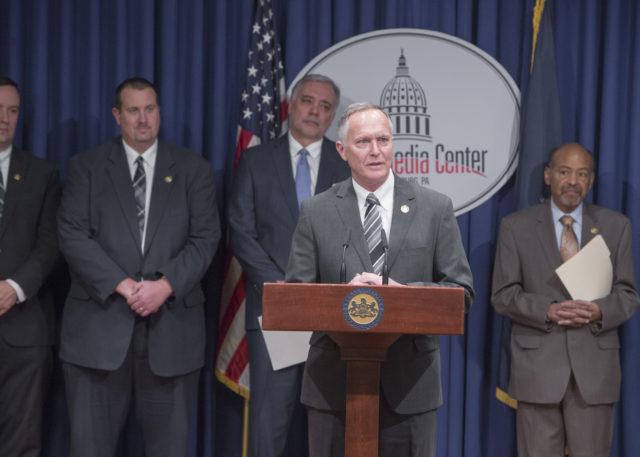
HARRISBURG – This week, the House Education Committee, led by Chairman Curt Sonney (R-Erie), approved a bipartisan package of bills aimed at improving career and technical education (CTE) in Pennsylvania. The bills now move to the full House for a vote.
“The advancement of this package of bills is a major step forward in improving career and technical education in the Commonwealth,” said Sonney. “With the governor in agreement that workforce development needs to be a priority in Pennsylvania, we are in a great position to make real strides in setting up today’s students for in-demand jobs with good pay and longevity.”
Bills in the package include:
- House Bill 265 (Rep. Craig Staats, R-Bucks), which would expand the online database that allows students and potential students to check where courses, programs, certificates and diplomas are able to be transferred among public schools and institutions of higher education.
- House Bill 297 (Rep. Zach Mako, R-Lehigh/Northampton), which would help improve career information and recruitment.
- House Bill 334 (Rep. Seth Grove, R-York), which would deal with the Commission for Agriculture Education Excellence, the use of course credits, and the classification of program codes.
- House Bill 522 (Rep. Mike Tobash, R-Schuylkill/Dauphin), which would create a CTE investment incentive program, including tax credits for businesses that contribute to CTE programs and enrollment expansion programs.
- House Bill 393 (Rep. Patrick Harkins, D-Erie), which would create an online career resource center.
- House Bill 394 (Rep. Gerald Mullery, D-Luzerne), which would require the Pennsylvania Department of Education to create an inventory of workforce development programs offered at secondary and post-secondary institutions.
- House Bill 395 (Rep. James Roebuck, D-Philadelphia), which would require CTE programs to establish occupational advisory committees.
- House Bill 396 (Rep. James Roebuck, D-Philadelphia), which would add at least one administrator from a career and technical center to each Workforce Development Board.
“Each of these bills addresses a specific area of career and technical education,” said Sonney. “Everything from increasing awareness of job training opportunities to eliciting support from existing businesses to making it easier for students to earn credits toward desired programs of study is covered. I anticipate swift progress on these bills as they move through the legislative process on their way to the governor’s desk.”








